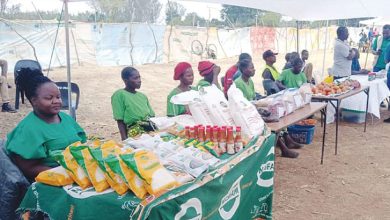Debt crisis threatens fight against HIV, Aids
The United Nations (UN) has warned that Malawi risks losing gains made in the fight against HIV and Aids and ending the pandemic by 2030 due to the debt crisis that has choked the country.
In a new Joint UN Programme on HIV and Aids (UNAids) report titled Domestic revenues, debt relief and development aid: Transformative pathways for ending Aids by 2030’, it is noted that debt servicing now exceeds 50 percent of government revenues for some Sub-Sahara Africa countries such as Malawi.

The report says such amount of debt servicing crowds out public spending for education, health and social protection, which are vital to ending Aids, especially that countries like Malawi are yet to achieve universal coverage of health, education and social protection.
Reads the report in part: “In Eastern and Southern Africa, seven countries spent more on interest repayments on their public debt than on health in 2022 as a percentage of gross domestic product [GDP] in Angola, Kenya, Malawi, South Africa, Uganda and Zambia.
“This reflects an increased reliance on domestic debt relative to external debt, which is typically more expensive and carries shorter maturities. For most countries, debt service on domestic debt is a much higher share of their overall burden than debt service on external debt.”
According to the report, Malawi collects on average, just 17 percent of the required revenue, yet in 2023, debt service as a percentage of revenues was at 132.83 percent, causing a rapid increase in the interest payments on debt.
UNAids executive director Winnie Byanyima said failure to address public debt, like for Malawi currently at K15.1 trillion, puts health security at risk.
“Public debt needs to be urgently reduced and domestic resource mobilisation strengthened to enable the fiscal space to fully fund the global HIV response and end Aids,” she said in her commentary on the report.
In an interview yesterday, Global Coalition on Health Financing Advocacy in Malawi chairperson Maziko Matemba said global health financing trends are slowing down.
Malawi Health Equity Network executive director George Jobe said while the country is servicing loans, there is need to address inefficiencies such as theft of medicines and government property, as well as corruption.
Data show that sub-Saharan Africa accounts for the largest number of people living with HIV with more than 25.9 million of the 39.9 million living with HIV globally.
In Malawi, people living with HIV range between 980 000 and 1.1




